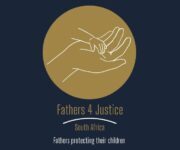The well-being of children should be the paramount concern in family law. However, Sections 19–21 of the South African Children’s Act have been criticized as potentially unconstitutional by groups like the Commission for Gender Equality. The fact that married and biological mothers are separated out from married fathers in sections 19 and 20 and that unmarried fathers have to prove their worthiness under section 21 clearly displays an inherent bias, and one could argue a deliberate bias. These sections deliberately discriminate based on marital status and are further compounded by the individual’s culture, religion, and traditional preferences in ways that negatively impact involved fathers and their children.
F4J SA argues that marital status, culture, religion, and tradition should not impede a father’s rights and responsibilities towards their children. The rights of mothers and fathers should be equalized under Section 18 of the Act, with automatic joint care, contact, guardianship, and maintenance from birth, regardless of marital status or other factors. This change would truly promote gender equality, non-discrimination, and the best interests of the child in line with the South African Constitution.
Flaws in the Current Approach
Under Sections 19–21 of the Act, legal parental rights and responsibilities are tied to marital status in ways that discriminate against married and unmarried fathers. Under Section 20, married fathers have to crawl on broken glass to prove that they are worthy of being a father to their children, where the law is quite clear that the right to provide for and be part of their children is already conferred on them. Section 21 requires unmarried fathers to crawl on broken glass and flagellate themselves to prove themselves worthy of having parental rights and responsibilities, and least we forget our black fathers, who are encumbered with additional legal and financial requirements under customary law that is blatantly racist and unconstitutional. This differential treatment, irrelevant and irrespective of marital status, is deemed unconstitutional.
Marital status plays a huge role in whether fathers are deemed more fit or not to be part of their children’s lives. However, the direct experience of F4J SA is that belief systems play a huge role in adding hidden discrimination based on culture and tradition by requiring married and unmarried fathers to navigate often contradictory beliefs, depending on their culture, tradition, religion, or marital status. There is no legitimate reason why cultural or religious traditions should impede a biological father from fully participating in their child’s life. Religion, culture and tradition have no bearing on one’s ability to raise and care for a child, nor should they impact what is in the best interests of the child.
The only question to ask is: Is this your child? If the answer is yes, then, in the name of equality, he should have automatic rights and responsibilities from birth.
The existing framework also makes it difficult for willing, able, and fit fathers to play a meaningful role in their children’s lives. Unmarried fathers face an uphill legal battle to gain rights to contact, care, and maintenance. Married fathers also face completely unnecessary difficulties exercising their rights post-separation or divorce.
Overall, the current system deliberately refuses to adequately recognize the father-child bond, promote gender equality in caregiving, or make the best interests of the child paramount.
Revising the Act
Sections 19–21 should be revised to promote the following principles:
Equal treatment of mothers and fathers, regardless of marital status
Automatic parental rights and responsibilities from birth for legally recognized or biological parents
The primary consideration is the best interests of the child
Specifically, the rights of mothers and fathers should be combined under Section 18, which currently only applies to both married and unmarried parents. This section should be expanded to automatically grant joint care, contact, guardianship, and maintenance to all legally recognized parents, regardless of gender or marital status, religion, culture, or tradition, from the time of their child’s birth. You are either the parents (plural) of that child or not; how difficult does this really need to be?
This framework aligns with the South African Constitutional Court’s emphasis on gender equality in parenting and international children’s rights precedents like the African Union and the United Nations Convention on the Rights of the Child. Children have a right to be cared for by both parents, wherever possible. Parental marital status has no bearing on the care a child requires or what is in their best interests.
Benefits for Children
Changing the Act as proposed will uphold the best interests of children in several ways:
Increased opportunities to form healthy attachments with both parents from infancy. Both international research and South African customary practices emphasize the importance of attachments between infants and caregivers for healthy development.
Greater emotional, financial, and social support. Father involvement is associated with better child educational, behavioural, and mental health outcomes. Increased opportunities for father involvement can enhance childhood well-being.
Reinforcement of a child’s identity and family relationships. Having active relationships and contact with both sides of the family helps children develop a stronger sense of identity.
Overall, the proposed changes will remove barriers currently preventing willing, able and fit parents from being involved in their children’s lives based on marital status or other irrelevant factors. This upholds a child’s right to be parented by both parents wherever safe and appropriate.
Conclusion
In conclusion, marital status, culture, religion, and tradition must not determine a father’s right to participate in raising their child. Sections 19–21 of the South Africa Children’s Act require urgent revision to equalize the automatic rights of mothers and fathers under Section 18, regardless of marital status or other irrelevant factors. This change will promote gender equality, uphold constitutional principles of non-discrimination, and reinforce the best interests of the child to be actively parented by both parents wherever safe and appropriate. South Africa has the opportunity to become an international leader in progressive family law by making this important revision.
Are you being unreasonably denied contact with your children?
For assistance Contact us today for all your mediation and litigation requirements.
Request a Consultation
Connect with us
Contact us at info@f4j.co.za

